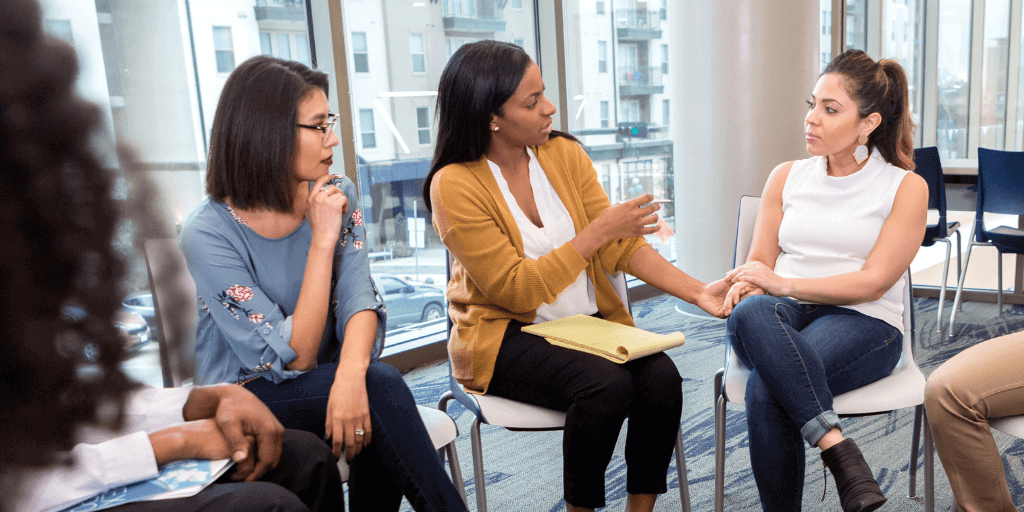
Dealing with disruptive parents/carers in a parent group
‘Dealing with disruptive parents/carers in a parent group’ blog article was written by Chris Hutchinson from the Parenting and Early Years Team at Australian Childhood Foundation.
Have you ever had a disruptive parent or carer in your parent group? The longer you are a facilitator the more chance you have of this occurring. Sometimes the disrupter is an over-sharer, sometimes they talk too much or over others, but sometimes they disrupt the group to the point that it is not safe or comfortable for the other participants.
In a face-to-face group, we can not only hear someone’s words, but we can read their body language, and this assists us in knowing how to manage situations that might arise. We can also be proactive in our responses, for example, the talker who barely takes a breath or talks over others – we can sit beside them, put a hand on their arm and thank them for their contributions and remind them that it’s someone else’s turn. Their body language may indicate that they are anxious or unsure of themselves and talking too much might be how they deal with their anxiety, but by sitting beside them we are saying it’s ok and we are there to support them.
In a recent online group, we had a number of disrupters, from both participants and technology.
Technology disruptions – there were challenges with connecting and staying connected, or needing to have the camera off to maintain connection and sound issues.
Participant disruptions – one participant often looked bored and had tried everything we had talked about, but it didn’t work for them. Another participant walked around carrying their phone causing a distraction with their movement and turning their camera on and off frequently. There was another participant who went off on a tangent when asked a question and was unable to respond to questions or discuss topics appropriately. And then there were the participants with their cameras off throughout the session so we couldn’t read them at all or know if they were still there.
So how did we deal with the disruptions in this group?
Technology is what it is, and we had to work with it as best as we could. For those with their cameras off, we regularly referred to them, asking questions and getting them to use the tools in the platform we were using, such as the hand up tool so we knew they were waiting to speak.
The participant who walked around and repeatedly turned their camera on and off was spoken to separately after each session and reminded to find a private space during the session and to leave their camera on where possible. Finally, after the fifth session, where they disappeared without explanation, they were asked not to return to the group. For the participant who found it hard to stay on topic or answer questions appropriately, they were gently brought back to the topic or asked the question again. This did not always work and in those instances, we had to move on to another participant or topic to keep the group moving along. For the parent who looked bored and nothing worked, we persevered with the knowledge that with persistence maybe something would stick or make a difference. Sometimes we would redirect the question to the group so the participant could hear other responses or thoughts.
If the group is being disrupted to the point that they feel unsafe and/or uncomfortable, it may be necessary to ask that person to leave the group and refer them to something more suitable, as we had to do.
It may feel easier to contain and manage a face-to-face group rather than an online group however, it just needs to be managed in a different way.
To support all the participants in a group but also manage the disrupters it is beneficial to have two facilitators. This is applicable for both face-to-face and online groups. Some facilitators are able to manage a particular group better than another facilitator, so use this to your advantage where possible too.
Become a facilitator for our Bringing Up Great Kids Parenting Program
Our Bringing Up Great Kids (BUGK) Parenting Program presents parents with access to knowledge about development, connection with others and an opportunity to reflect on their communication with children.
More than 3000 facilitators have been trained to use the BUGK Parenting Program in a diverse range of organisations and you have the opportunity to join this community.
